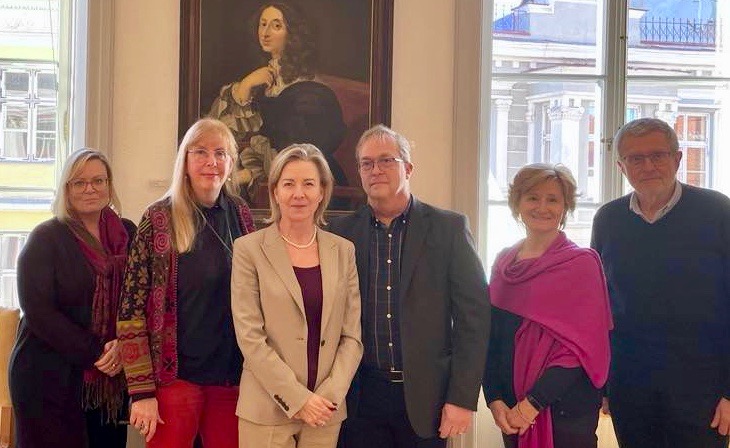Joint REDEM/RUCARR seminar: «The importance of solving the problems of internally displaced persons by local authorities and protecting their rights in the administrative courts in Ukraine
Seminar given by Olena Miliienko, British Academy Fellow at the Politics & International Studies Department of the University of Warwick UK
When? October 3rd, 15:15-17:00
Where? https://mau-se.zoom.us/j/62892878581
Abstract: In Ukraine, since 2014 (the beginning of Russia’s armed aggression in the east of the country and illegal annexation of Crimea), a significant number of people have become internally displaced persons who have repeatedly suffered violations of their rights, including the right to life, basic social services, medical care, education, access to housing. Resolving these issues requires effective intervention by administrative courts to protect the rights of IDPs. The purpose of the study was to reveal the mechanisms and effectiveness of administrative courts’ intervention in resolving internal displacement issues, and to identify problems and shortcomings of government policies that encourage internally displaced persons to apply to the court. It was found that administrative courts play an important role in resolving issues of internal displacement in case of possible shortcomings in government policy. They provide legal protection and support for those in need of internal displacement and can influence the improvement of government policies in this area.
The study highlights the need to change government policies, systematically assess and develop effective internal displacement strategies. The study has practical implications for understanding the impact of administrative courts on internal displacement and government policies. There is a need to improve coordination and cooperation among various government bodies to ensure appropriate conditions and protect the rights of persons in need of internal displacement. In this way, court decisions can be a catalyst for changes in government policy and force the government to provide adequate protection and support to affected individuals.
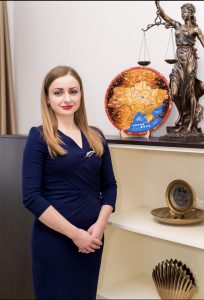
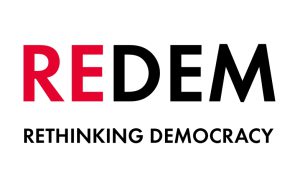



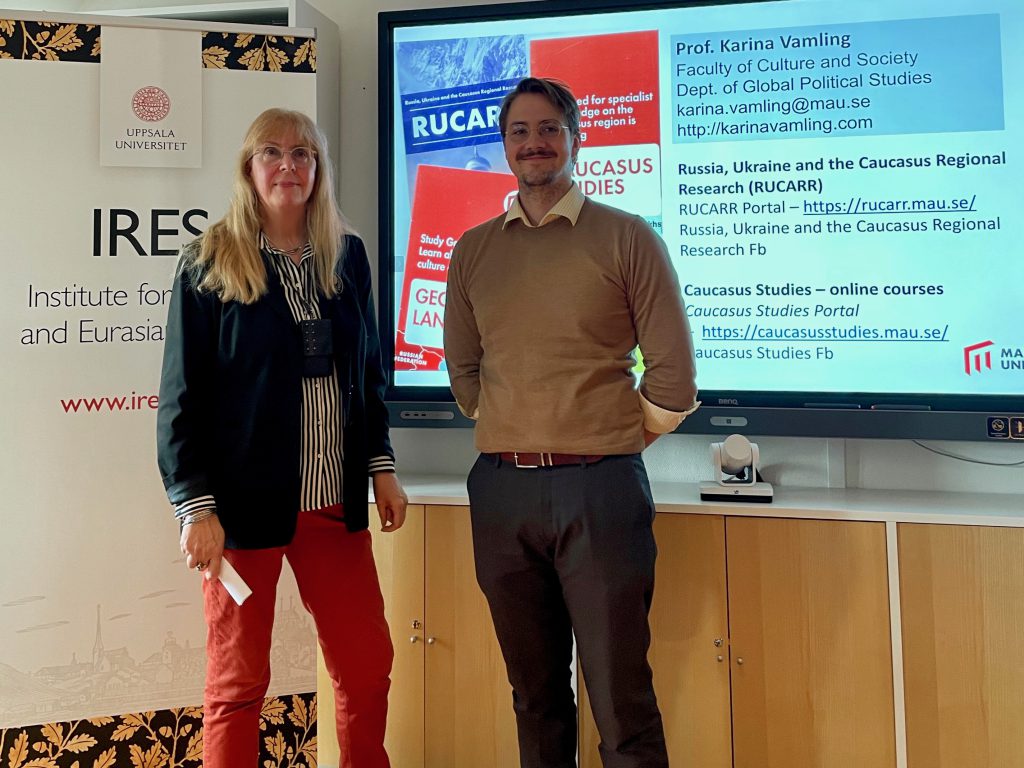 Prof. Karina Vamling presented RUCARR and Caucasus Studies to alumni and MA students at IRES Institute for Russian and Eurasian Studies at Uppsala University – by invitation from TSARES, The student association of Russian and Eurasian studies (here together with Fabian, vice chair of the association). Great initiative!
Prof. Karina Vamling presented RUCARR and Caucasus Studies to alumni and MA students at IRES Institute for Russian and Eurasian Studies at Uppsala University – by invitation from TSARES, The student association of Russian and Eurasian studies (here together with Fabian, vice chair of the association). Great initiative!
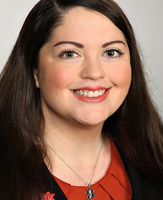

 Welcome to the RUCARR seminar on May 11, 10.00-11.30 with Ass.Prof. Edward Lemon, Bush School of Government and Public Service, Texas A&M University and Dr Oleg Antonov, researcher at Södertörn University and RUCARR, Malmö University.
Welcome to the RUCARR seminar on May 11, 10.00-11.30 with Ass.Prof. Edward Lemon, Bush School of Government and Public Service, Texas A&M University and Dr Oleg Antonov, researcher at Södertörn University and RUCARR, Malmö University.
